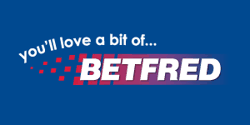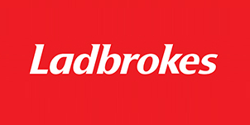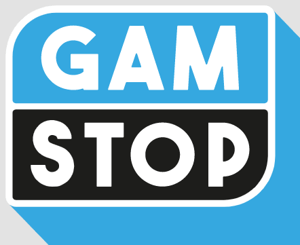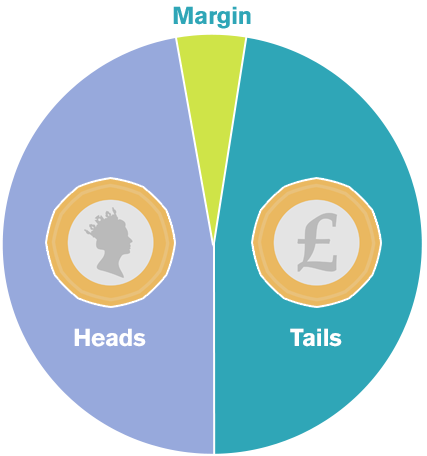
Bet Get – Sign Up Offers From UK Betting Sites
More and more betting sites are offering “bet and get” style sign up offers rather than traditional matched bets or deposit bonuses, and we’ve made a site about them. Bet and get offers tend to be for fixed amounts but can be very generous, meaning that an initial deposit of £5 could see you being awarded £30 in free bets, or more!
Best Bet & Get Free Bets For February, 2026

We regularly update this list and are always on the look out for new offers – so if you find something that you think is worth listing, let us know! Terms and conditions will apply to all offers so make sure you read the significant terms before claiming. And always bet responsibly.
What Kind of Betting Offers Are There?
When it comes to bet and get deals there tend to be two camps depending on how much you want to deposit, with the value of the free bets varying roughly proportional to the qualifying deposit:
Bet £5 Get £20 or £30
A fiver is often the minimum amount you can deposit at a betting site, so it makes sense than the smallest bet and get offers are triggered by £5. These kinds of offers dish out somewhere between £20 and £30 in free bets, normally split into multiple smaller bets such as four £5 free bets or three £10 free bets. Sometimes these offers will contain a casino portion, such as £20 in free bets and £10 in slot spins.
Bet £10 Get £40, £50 or £60
For larger deposits there are often larger bonuses up for grabs. For £10 there tend to be offers that sit in the £40 to £60 range, although these are much more likely to be made up of non-free bet components. This isn’t always the case, but there definitely seems to be a trend for more casino and lottery bets to be included in the larger bonuses.
Note: For both deposit amounts we offer lists of the relevant offers, just click the relevant link above.
Learn the Lingo
If you’re new to these kinds of betting offer then you might not be too familiar with some of the terms. Here’s a quick run down:
- Qualifying Bet – This is the “Bet” part of a bet and get offer. So if you are claiming a Bet £5 Get £20 offer then the qualifying bet is the “Bet £5” bit. The qualifying bet is how much you need to wager of your own money in order to trigger the offer. Most of the offers we see tend to be either £5 or £10.
- Minimum Odds – Most bet related offers incorporate minimum odds into their qualifying bets, and also sometimes to the free bets (but not always). These are the odds that your bet must be placed at in order to be eligible for the welcome bonus. So if an offer has minimum odds of evens, you’ll need to place your bet at 2.0 or more or you won’t receive the free bets.
- Free Bet – A free bet is the cornerstone of any decent sports related bet get offer. Whilst the qualifying bet is the bet you need to place in order to qualify for the promotion, the free bet is the part that you’ll receive as a bonus. Free bets often come as tokens for set amounts and can be used in place of money for a bet that you want to place.
- Stake Not Returned – A common term that you’ll see within the terms of an offer that involves free bets is “free bet stake not returned”. This means that if you place a £5 bet using free bet and it wins, you’ll only receive the winnings from the free bet and not the free bet itself. The opposite of this is “stake returned” but that is much less common these days.
- Cash Out – To cash out doesn’t mean to withdraw, at least in this instance. Cash out refers to the ability to close out a bet early based on the current odds. Because this ends your bet you normally can’t use cash out in conjunction with any bet and get offer – including both the qualifying and free bet portions.
- Wager Requirement – Wagering requirements don’t normally apply to free bets for sports, but you normally will have them for anything casino related. So if your offer comes with free spins or a slots bonus, you’ll have to wager the bonus a set number of times before the bonus and winnings are converted to cash. This means that if you have a £10 slots bonus with a 10x wagering requirement, you need to bet £100 on slots before withdrawing.
Can Online Betting Sites Be Trusted?
At Bet Get we have decades of experience of gambling online and hold accounts with more brands than you can shake a stick at. Whilst it’s true that all betting sites in the UK need to be licensed in order to offer their services, some are a little lax when it comes to customer support and pricing.
For this reason we thoroughly vet all of the brands that you see on this website and only list those that we think offer a solid product to their customers. We also regularly check and compare odds and margins to ensure they are offering value for money – you can find more details of this in our reviews.
All of the betting sites listed above have met our rigorous standards for inclusion. This means that on top of being fully licensed and legal in the UK, they also provide a service that is of sufficient quality for our users. Among other factors we require all sites to have sensible margins, responsive customer service and fast withdrawals that are free of unreasonable limits or restrictions.
About the Sites
Whilst all of the offers listed in the previous section come from reputable and trustworthy betting sites we are aware that some of you might want to know a bit more about the brands themselves and the companies that operate them. In the next section you’ll find a table that tells you who ultimately operates the site, what license they run under and what safer gambling tools they offer.
| Site | Operator | UKGC License | Deposit Protection | IBAS | Gamstop |
|---|---|---|---|---|---|
 |
Blue Star Planet Limited | 43173 | Medium | Yes | Yes |
 |
888 UK Limited | 39028 | Medium | No | Yes |
 |
Petfre (Gibraltar) Limited | 39544 | None | Yes | Yes |
 |
LC International Limited | 54743 | High | Yes | Yes |
 |
LC International Limited | 54743 | Medium | Yes | Yes |
As you can see many sites belong to a larger group with some operators being represented by multiple brands in the table. For example, Coral and Ladbrokes are both run by the same company – something that is becoming increasingly common given the rate at which betting companies are merging and being bought out.
Key Terms
- Operator: This is the legal entity that runs the site and that is responsible for the license. This will also be who holds your money and is responsible for your bets. Some companies are also part of larger groups. For example, Coral are operated in the UK by LC International Limited who are owned by the GVC group – a massive online gambling company who also run numerous other brands.
- License: This is the reference number of the UK Gambling Commission license. We’ve also linked directly to the license page on the UKGC site so that you can check the details for yourself.
- Deposit Protection: By law all betting sites have to tell you how they protect your money in the unlikely scenario where they go bust. Currently there is no law to say that the funds have to be segregated but they at least have to tell you if they are or not. There are three levels: Not Protected – where the money is not segregated and so at risk if anything were to happen to the bookie, Medium Protection – where procedures and/or insurance is in place to ensure player funds are returned to them if the company stops trading and High Protection – where the customer funds are held in a legally separate account and controlled by an independent party or auditor. See here for more details.
- IBAS: Many sites, but not all, are signed up to the IBAS dispute mediation service. IBAS will act as an adjudicator for any complaints you may have with the site.
- Gamstop: The Gamstop register is now a legal requirement of UK licensed sites and allows players to self exclude from all licensed betting sites in one go. Exclusion is non reversible and can be set for a period of 6 months, 1 year or 5 years.
Is Gambling Legal in the UK?
 Yes, Gambling in the UK is legal.
Yes, Gambling in the UK is legal.
The UK Gambling Commission (UKGC) are the governing body within the UK and it’s their role to oversee all online betting sites, as well as other gambling products such as casino, poker, bingo and lottery.
It’s worth noting that some sites do exist that do not hold a license. These are not only illegal within the UK, but they offer no protection to the customer should anything go wrong. We strongly advise that you steer clear of any gambling site that does not have a full license from the UKGC.
Is Online Betting Safe?
As the online betting industry continues to grow, the impact of players safety becomes more of a priority. The UK government has put incredible pressure on the betting industry, in particular, to make sure that players are safe, and any financial transactions are completed without hitch.
The short answer to the question is yes, online betting is safe. But there are caveats and safe sites only fall into the bracket of fully licensed sites. If there was no license, then we would assume that the site is not safe.
Transparency is one of the biggest innovations within the online betting sector over the last decade or so. It’s now easier to research information about betting companies than it ever has been.
The UKGC has also opened up their website to the public to allow them to perform their own research. You’re now able to simply type in the name of the betting site you need the info on and it will ping back any licensing information it has. What’s great about this is that not only can you see if the site is licensed, but also what type of license they hold.
For example, they will include information on what products it’s licensed to use (sports, casino, poker, bingo etc.) when the licenses were issued, the reference number, address and other helpful details.
On top of this, there are several independent companies that betting sites can register with. Many of these are now mandatory and linked into the license that the UKGC will issue.
IBAS (Independent Betting Adjudication Service)
 IBAS was set up in 1998 as an outlet for bettors to use when trying to work out disputes with gambling sites. Before 2005, there was nothing in place that would support the player in these claims and relied on goodwill gestures from a bookmaker should anything go wrong.
IBAS was set up in 1998 as an outlet for bettors to use when trying to work out disputes with gambling sites. Before 2005, there was nothing in place that would support the player in these claims and relied on goodwill gestures from a bookmaker should anything go wrong.
Since 2005 IBAS has been included as part of the set up with the UKGC and now work to help players tackle a series of issues. These include banking problems, arguments over settled bets and general issues that players might be having with a bookmaker.
They are designed to create a process that eliminates having to go to court to settle a claim and work with both the player and the bookmaker to come to an amicable solution.
The dedicated team who work with IBAS are professionals within the industry. They likely know a lot more than most average players and as a result, are in a better position to help aid where possible.
They also have much stronger ties and links to each of the betting sites who are registered with them. A lot of the bigger companies have teams whose sole job it is to work with IBAs with these claims. From a player’s point of view, they almost act as a solicitor or lawyer would, but in what is essentially an unofficial role.
Bookmakers are not legally required to sign up to IBAS, although most of them do. The link with the UK Gambling Commission means license applications will take into account if they are registered with IBAS or not.
By registering with IBAS the bookmaker then agrees to abide by an IBAS ruling. This should then be the end of the matter, but both the player and the bookmaker can appeal, which likely means taking the dispute to court.
To put into context of how success IBAS has been for players since 1998 they have claimed nearly £6.5 million in sums paid back to players of multiple online platforms.
GamStop
 GamStop has been designed to help refuse the number of problem gamblers getting access to online gambling sites. It’s a system that adds players to their database and should they be flagged as either having a problem or any sort of exclusion with an account, it will flag up for all that player’s account.
GamStop has been designed to help refuse the number of problem gamblers getting access to online gambling sites. It’s a system that adds players to their database and should they be flagged as either having a problem or any sort of exclusion with an account, it will flag up for all that player’s account.
The program is now compulsory for all betting sites to be a part of. Whilst it’s not directly run by the UKGC, it is now a part of their licensing process which means that the bookmaker has to be registered with GamStop before they can get a license.
Here is how it works:
When you sign up with a betting site your details will be stored with that company. If you then exercise any of the self-exclusion features or if you are flagged by a problem gambling trigger on that site, then your details will be forwarded to GamStop.
Once on the GamStop site, your profile will include the trigger that is attached to your account. This could be anything from a daily deposit limit being set to a self-exclusion.
Each of your accounts will then be linked to your profile. So, if you have accounts at Bookmaker X, Bookmaker Y and Bookmaker Z, they will be linked to your profile. This means if you are excluded from Bookmaker X, it will copy across to Bookmaker Y and Bookmaker Z.
The system works by having all bookmaker sign up to it, meaning that players are all accessible via the same database. This in turn means that players will be refused access from all sites where needed and not just one.
As a result, it’s going to help massively concerning problem gambling in the UK. Linked with the new KYC (Know Your Customer) laws (more on that below) it now makes those that are most vulnerable almost impossible to get access to betting sites that they are not allowed to.
KYC & Customer Verification
The gambling industry has seen some huge changes over the last couple of years, with one of the biggest being that of KYC (Know Your Customer). This has been introduced to make sure that betting sites and the like know exactly who is signing up and playing on their site.
It’s all come on the back of an increased number of fake and fraudulent accounts that could get access to gambling sites. Some included underage players and others including those that might have previously been banned or excluded from the site.
Even though this has made registering on new betting sites a little more time consuming, please be aware that this is without a doubt for the greater good of the industry. It allows gambling sites to keep those who shouldn’t be playing off and provides a much safer platform for those who can get access.
Also, it’s worth noting that this is now the law, as outlined by the UK Gambling Commission. So, if a betting site were not to ask you about all this information then alarm bells should start to ring.
Different procedures are in place for this and each betting site will differ on what line they decide to take. Here are a few common processes that are used.
The first, and most popular is that of proof of ID. For this, you will likely need to send two forms of information in, which will be proof of address and photo ID. Some sites will accept things like a driving license for both of these, but other documents can include bank statements, utility bills, passports and ID cards.
You don’t need to send in the original documents for the most part, and simply taking a photo on your smartphone, as long as it’s clear, will suffice.
If a betting site needs a little more information, then they may request to do a soft credit check on your account. This will allow them to get a little more information about you including things like the amount of debt you have and if you are a homeowner.
Finally, they may even ask you to complete a proof of wealth check. This will mean that you need to outline how much money you earn and then provide proof of this, usually via payslips.
This is part of their affordability checks and some betting sites will limit the amount you can deposit and then wager, based on this. Even though this is still fairly new in the industry, it’s one of the best ways for a bookmaker to learn what is a safe sum of money for a player to wager and then limit accounts from that.
There are no hard and fast rules as to which of these KYC processes you will have to complete. They are all based on a case by case process, meaning that each player and each betting site will differ.
We highly recommend that you take the time to factor all these processes into setting up your account and have them to hand when registering. This is not something that is optional and if you are unwilling to provide this sort of information, then you won’t get access to the betting site.
When you get asked for this info will differ as well. Some betting sites ask as soon as you sign up, some before you’ve even logged in and some before you make your first withdrawal. You can do this voluntarily if you’ve not been asked right away, which we recommend saving time.
Do You Have to Pay Taxes on Winnings?
In the UK there are no taxes to be paid on any winnings that come from gambling. This includes anything from the lottery to sports betting and everything in between.
You don’t even need to declare any winnings. So, even though you’ve won money, you won’t need to declare this to HMRC.
The same rules apply to professional gamblers as well as recreational ones. Whilst they would technically need to register as self-employed, any direct winnings will not be taxed. However, this means that no contribution has been made to any National Insurance, which means that money is not paid into your state pension. Some players choose to voluntarily pay this.
What is the Best Payment Method to Use Online?
One of the biggest innovations within the online gambling sector over the last 10 years has been the range of payment methods that are now accessible online. This has given a huge number of players more options when it comes to banking, making it easier to both get money in and out of a betting site.
Safety is one of the main issues when it comes to new players and they rightly want to know that their details are going to be safe. Part of the licensing from the UKGC includes exactly this and they make sure that the payment methods and betting site is offering are both safe and prompt for players banking with that site.
When you choose a process like debit cards then the payments will show up on your statement just like it would when you shop at your local supermarket. However, what you need to note is that the company who you are betting with might not always be the company who process the payments.
It’s very common for smaller sites to be owned and run by bigger sites these days. They are often referred to as “White Labels” which means a company brand a betting site with their logo, but things like markets and banking are processed by another site.
Whilst this can seem a little strange, as we said, it’s very common. You can also see who these white labels are attached to via the UKGC search function on their site. It’s all very transparent, but it can lead to confusion at first when it comes to things like brands on a bank statement.
It’s possible to set up separate accounts for betting, which work alongside your main account. This could be in the form of an additional card or even a separate account. This ties in with some of the banking options that we include below.
Most betting sites will have several different payment methods to choose from. We can’t say which is best for each player, as some work better than others, but we’ve included a number of banking “groups” below that you can work within.
Debit Cards
 Debit cards are still the most popular payment method for people in the UK and this trend continues with online betting as well. They are a card that most people have access to, and it means that money can be debited to a betting site instantly and withdrawals are usually back into your account within a couple of days.
Debit cards are still the most popular payment method for people in the UK and this trend continues with online betting as well. They are a card that most people have access to, and it means that money can be debited to a betting site instantly and withdrawals are usually back into your account within a couple of days.
All betting sites will accept some form of debit card and there are rarely fees to pay with this option. It’s possible to set up separate accounts or cards to use exclusively for betting but be wary that you may need to some sort of proof of funds from the KYC process if your account is new.
Modern technology has seen this payment evolve to include mobile payment methods, such as Apple Pay and Google Pay. These are both linked to smartphones and allow players to deposit using either of these.
If you are on a mobile device then it’s likely going to be much easier to use one of these as it means you don’t need to enter your card details. However, you won’t be able to withdraw to Google Pay or Apple Pay, so you will need to attach a bank account for this.
It’s worth noting that credit cards are now banned for all UK players. This law has been brought in to prevent players from spending money they don’t necessarily have and to reduce problem gambling as a result of this. A site may still offer this payment method, but it won’t be accessible to UK-based players.
PayPal
 PayPal is now one of the world’s biggest payment methods and it’s no surprise to learn that the gambling sector allows payments from it. We wouldn’t say that it’s as accessible as debit cards, but it’s a close second and a process that lots of players have access to.
PayPal is now one of the world’s biggest payment methods and it’s no surprise to learn that the gambling sector allows payments from it. We wouldn’t say that it’s as accessible as debit cards, but it’s a close second and a process that lots of players have access to.
What’s great about PayPal is that you don’t need to hook your debit card up to a betting site. If you use multiple sites it means that you can simply log in with the same PayPal account to each instead of registering your card.
The reason why this works is that on the slim chance there is fraudulent activity on your account, you can simply change the password of your PayPal account, instead of changing your debit card which is likely linked up to dozens of home accounts such as utility bills, mortgage, car finance, mobile phone contracts, etc.
PayPal is also one of the fastest payment processing methods for withdrawals. You can usually get your money out in a matter of hours, where debit cards can take several days.
Digital Banks
 These are the new breed of banking for online betting sites. Digital banks are essentially the same as using your debit card, but instead of it coming from a high street name like Barclays, NatWest or Santander, they are online platforms like Revolut, Starling and Monzo.
These are the new breed of banking for online betting sites. Digital banks are essentially the same as using your debit card, but instead of it coming from a high street name like Barclays, NatWest or Santander, they are online platforms like Revolut, Starling and Monzo.
They basically offer the same as your normal bank would, but it’s all online. With that, they are now increasingly popular within the online betting sector as you can set them up alongside your main account and use this just for online betting or online transactions.
Some of the features with these are great and they allow you to create a one-time debit card number that is used for each transaction. This means that should your account get hacked they wouldn’t be able to do anything with that debit card number.
There are a couple of downsides to it though, with one being that some gambling sites will ask you to use a dedicated debit card and not a virtual one. They may even ask for proof of having the card in hand, which you don’t always get from a digital bank.
It’s worth noting here that you can’t use pre-paid cards as these falls under the same restrictions in the UK as credit cards. Most of them offer proper debit cards, so it’s not too much of an issue these days.
Do the Bookies Play Fair?
The integratory of online betting is a conversation that will likely keep cropping up until the end of time. There are flaws when it comes to anything and everything online, so it’s only right that questions are asked.
What we can tell you is that the industry is as heavily regulated now as it’s ever been. The UK Gambling Commission has cracked the whip over the last decade or so to make sure that players are safe when it comes to money and that they are safe when it comes to the reliability of the games they are playing.
The short answer to the question of if they play fair is simply, yes. The reason that we can so confidently state this is that they wouldn’t be able to gain a license if they were not. Also, if the news ever got out of any wrongdoing, their reputation would be gone in a matter of minutes and legal investigations would take place to get to the bottom of things.
There are simply no margins of error for bookmakers these days. They either play by the rules and keep their customers safe or they get put on the scrap heap and likely have several lawsuits thrown at them whilst in the process.
Below we have included several reasons why a bookmaker has to play fair and also ways that they can try to manipulate the rules.
How Do Bookies Make Money?
 Bookmaking is very much an art and the ability to get markets that are priced in a way that the bookmaker gets a return on any result can be tricky. But this is essentially the goal with every market that they offer.
Bookmaking is very much an art and the ability to get markets that are priced in a way that the bookmaker gets a return on any result can be tricky. But this is essentially the goal with every market that they offer.
To do this they apply what is often referred to as a margin. You may also see this called vig, vigorish, overround or similar.
The margin is the money that they make from each bet. They will have a margin for a market and then regardless of the result, they will make money from that margin.
Margins are adjusted depending on what the market is and what sport it is. They also need a certain amount of money to filter through to be able to successfully make any market adjustments that will give an equal net win on all bets. Sometimes this is not always the case so there may be times where one result will yield a higher net win than another. Horse racing is a good example of this, often with the favourites having smaller margins than the rest of the field.
To create a margin the bookmaker must move away from the “true odds” of an outcome. An easy example to use here is a simple coin flip where the chances of landing heads or tails are the same. True odds would be 2.00 or even money. If the bookmaker took the same number of bets for each at that price, they would break even.
A margin needs to be applied and this amount can range. Let’s assume that it’s 5% for this example, making the odds 1.90 for each outcome.
If £100 worth of bets were placed on each this means that they would take £200 (total bets) and payout £190 (£100 x 1.90) for the winning flip. This would leave a net win of £10 for the bookmaker, regardless of the result.
Moving it to sporting events is much tougher as there is no set percentage for each market. They need to use their best ability to calculate odds fairly and then balance books depending on how much money comes in for each result.
This is the main reason why odds shorten and drift, coming down to how much money coming in for that result. The more money the price will shorten, and the other prices will lengthen to keep the total margin for the market within the 5% or whatever percentage they are using.
Do Betting Sites Have to Pay Out?
Stories of bookmakers not paying out over certain bets (usually larger ones) seem to be pretty common within the industry given the amount of press they get. But the reality is that the vast majority of bets are paid out without question.
In years gone by it was a lot easier for betting sites to simply not payout on certain bets, citing terms that had been violated which the player was likely unaware of. Whilst not common, they kicked up enough of a stink to give the industry a bad name.
However, things are much more transparent within the online gambling sector these days and there are plenty of sites and companies that are willing to fight for the player over payouts with a bookmaker.
IBAS (Independent Betting Adjudication Service) is one of these services that will work with the player to settle disputes, which include payouts. Given their ties with the UK Gambling Commission, who are the governing body for licenses in the UK, it means that should the player have a fair case then they often have a good chance of getting their payout.
Non-payouts also generate a lot of bad press for betting companies. The likes of social media and online platforms mean that words travel fast and a single piece of bad press can be devastating, especially for medium/smaller brands.
All of this has now created a much more transparent platform for both players and betting sites. Welcome bonuses, free bets and other offers come with clear requirements to clear these offers, with the bookmaker outlining what is expected of the player to get any free cash.
They have also restricted a lot of bonuses to prevent bonus abuse. This often came in the form of a player registering several accounts to claim a bonus or free bet. However, the change in KYC laws now means that it’s almost impossible for a player to open multiple accounts.
To surmise, non-payouts are extremely rare. Do they have to pay out? Well, in most cases they will avoid a storm when it comes to the press backlash. But they will have terms that state that if they feel any wrongdoing has occurred, they won’t payout. If this happens, you need to get someone like IBAS on board to fight your corner.
Are Bookies Allowed to Limit Winners?
It can be quite common to see bookmakers limit people who win big or win often. The argument of them being happy when you lose but not when you win is valid but at the end of the day, they are a business and they are in it to make money.
Bookmakers can choose which players they allow to use their platform and they can also choose what limits they have in place for each account. It’s their business at the end of the day and they have a right to do this.
If an account gets limited it’s almost always down to the fact, they have consistently won big over a large period of time and costs the bookmaker money as a result. The reality is that the bookmaker will allow you to win and often win big, but they won’t want to see this daily and will move players on as a result.
The argument of is this is a fair process is one that will continue for likely many years. Many people suggest that all players should be treated equally, regardless of how much money they wager. The reality is that this is not going to be the case.
What we will add is that bookmakers aren’t just going to limit or close accounts and lock your winnings away. They will do it discreetly and will, of course, allow you to withdraw funds or even close an account if you wish. You can also argue your case with bookmaker to try and get limits lifted. However, history proves that this is sometimes an uphill battle and might not reinstate an account fully.
Copyright Bet-Get.com - Do Not Copy Without Permission | Please Bet Responsibly